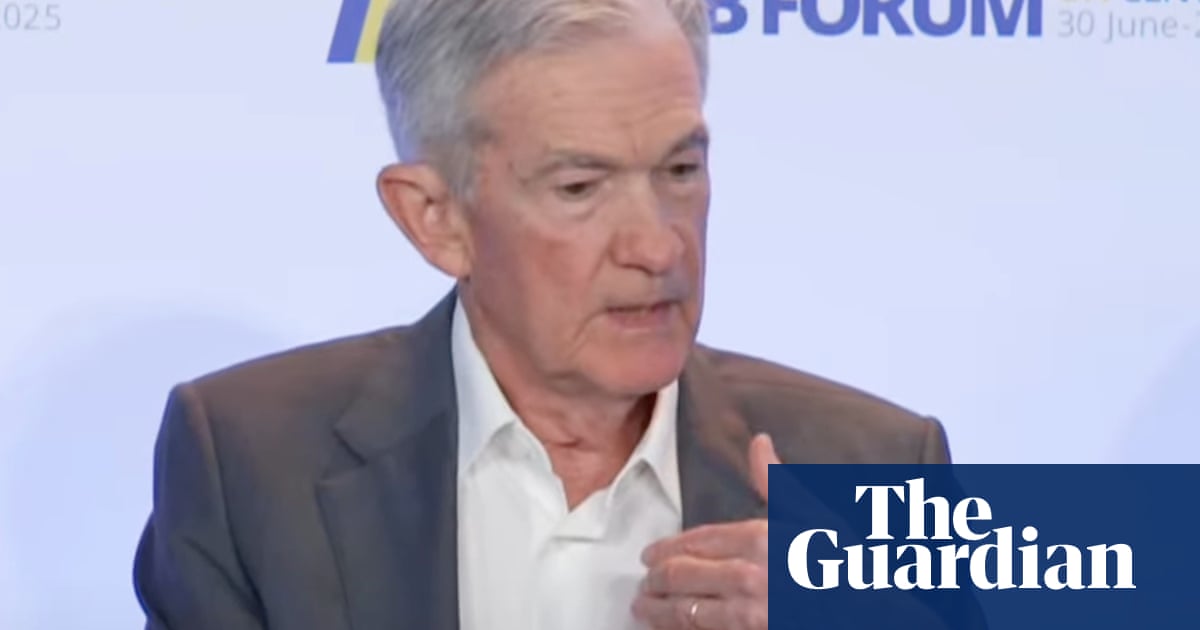The chair of the Federal Reserve, Jerome Powell, has blamed Donald Trump’s tariffs for preventing the immediate interest rate cuts the president has demanded.
Trump hasrepeatedly urged Powellto reduce borrowing costs in the US economy, and on Monday posted a hand-scrawled note on his Truth Social platform saying: “You have cost the USA a fortune – and continue to do so – you should lower the rate by a lot!”
But Powell told an event hosted by the European Central Bank (ECB) in Portugal on Tuesday that the Fed was waiting to assess the inflationary impact of the president’s trade policies.
Speaking on a panel of central bankers in Sintra, he said: “In effect we went on hold when we saw the size of the tariffs.
“Essentially all inflation forecasts for the United States went up materially as a consequence of the tariffs. We didn’t overreact, in fact we didn’t react at all. We’re simply taking some time.”
Asked if the Fed would have cut its key Fed funds rate further, from the current target range of 4.25-4.5%, if it wasn’t for tariffs, Powell said: “I think that’s right.”
Economists generally expect tariffs to be inflationary, as the costs of paying them tend to be passed on to consumers. The effects are highly uncertain, however, as some retailers may be able to absorb some or all of the costs, or switch to alternative suppliers.
Powell said: “We haven’t seen effects much from tariffs, and we didn’t expect to by now. We’ve always said the timing, amount and persistence of the inflation would be highly uncertain and it’s certainly proved that.”
He added: “We’re watching. We expect to see over the summer some higher readings, but we’re prepared to learn that it can be higher, or lower, or later or sooner than we’d expected.”
Trump has consistently sought to undermine Powell since returning to the White House, peppering him with insults such as,“major loser”and“very dumb”,and suggesting he could be fired.
When these personal attacks were raised at the ECB event, the Fed governor received a round of supportive applause from the audience – and from his fellow central bankers on the panel.
The US treasury secretary, Scott Bessent, has suggested theTrump administrationmight take advantage of the opening of a vacant seat on the Fed’s board to appoint a potential successor.
“There’s a seat opening up … in January. So we’ve given thought to the idea that perhaps that person would go on to become the chair when Jay Powell leaves in May,” he told Bloomberg TV.
Speculation that Trump could replace Powell early has been one factor behind the depreciation of the dollar, which hassuffered its weakest first-half in more than 50 years.
Speaking alongside Powell on Tuesday, the ECB president, Christine Lagarde, suggested it was too soon to declare “mission accomplished” on inflation in the eurozone; while the Bank of England governor, Andrew Bailey, said there were signs that the jobs market in the UK is slowing.
